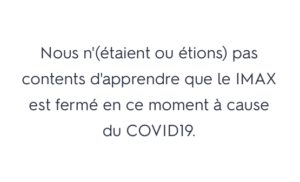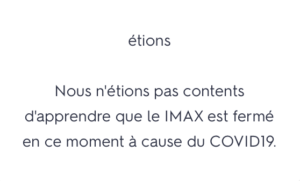Our Inquiry Question is:
How can Quizlet be used as a platform for creating resources for studying French and other languages? Quizlet has the potential to be a highly accessible resource, both in terms of content simplicity, technical simplicity and affordability (free).
Written by: Evan Roberts & Pamela Fraser

Photo by Zach Lucero from Unsplash
How did Quizlet come about?
The story of Quizlet begins with Andrew Sutherland, a 15-year-old high school student studying for a French exam in Albany, California. He had a whopping 111 new vocabulary words to learn. To accomplish this, he decided to create a software program. Quizlet was born. Flash forward two years and Andrew launched his creation on the world wide web, making him a young entrepreneur. The site went public on January 17th, 2007.
What is Quizlet?
At its core, Quizlet is a memorization tool. Users create flashcards with a specific term on one side and a definition on the other. The website based application also allows you to insert images into your flashcards. Additionally, it should be noted that there are numerous “modes” that you can choose from to do your studying. These modes are: “Flashcards”, “Gravity”, “Write”, “Speller”, “Match” and “Live”. Quizlet’s Live mode in particular has interesting applications that could be explored in a foreign language classroom.
Quizlet can be used on a computer, a tablet or on a phone. It is also free to play and create quizzes on Quizlet. You can also choose to upgrade to Quizlet teacher. This allows you to create multiple choice questions, format your text, remove all ads and track your students’ progress. Click here to learn more about Quizlet Teacher. They are having a sale right now for 40% off, making it only $3/month.
Quizlet has the following advantages:
- It has built in, multilingual vocabulary for instant translation and autocomplete. As we wrote flashcards for French vocabulary, options for French words would pop up. This has the potential to save a lot of time, especially for someone who is designing study resources for French but is not 100% fluent.
- The combination of several styles of resource and easy entry of content makes it highly customizable. Creating resources for a wide range of subjects and audiences will therefore be a fairly efficient process.
- Using the Quizlet Live game, you can incorporate cooperative work and team-building into your French class. This can be a fun way to allow students to learn from each other’s knowledge and also build camaraderie between class members.
- Quizlet’s simple, user-friendly format provides a quick and easy way for students to prepare for tests.
Quizlet has the following disadvantages/concerns:
- The ads can be distracting. However, this is an essentially unavoidable feature of most free to use online resources, and most students probably have enough experience with such ads that they will have learned to ignore them.
- Students may learn misinformation. There is not really a built-in content control mechanism, so any mistakes made by people creating resources could be passed on to learners.
- Students may use Quizlet to cheat. Any Quizlet-based assessment may be vulnerable to students accessing the answers and cheating on tests.
To avoid the pitfalls of disadvantage 2, A teacher could partner with another teacher to proofread teacher-made study aids, and offer to approve resources made by students to improve their accuracy as well. To avoid the drawbacks of disadvantage 3, teachers can use Quizlet exclusively for teaching and formative assessment purposes, leaving the summative assessment and final marks to other, less vulnerable options.
We made 4 sets of Quizlet cards. These are targeted towards grade 9 Core French.
Food Words: English to French vocabulary words
Occupations: French to English vocabulary words


Example of Quizlet Card that we created
Works Cited
Stauffer, B. (2019, July 23) The Pros and Cons of Using Quizlet. Applied Educational Systems. https://www.aeseducation.com/blog/quizlet-pros-cons
Wolff, G. (2016, November/December). Quizlet Live: The Game Now Taking the World By Storm. The Language Teacher, 40(6), 25-27. Retrieved from https://jalt-publications.org/sites/default/files/pdf/the_language_teacher/40.6tlt.pdf#page=27
Wright, B.A. (2016). Transforming Language Learning with Quizlet. In P. Clements, A. Krause, & H. Brown (Eds.), Transformation in language education. Tokyo: JALT.
Group EdTech Inquiry Project for EDCI 336 by Evan Roberts and Pamela Fraser
Photo by AnnasPhotography from Pixabay.

Leave a Reply
You must be logged in to post a comment.